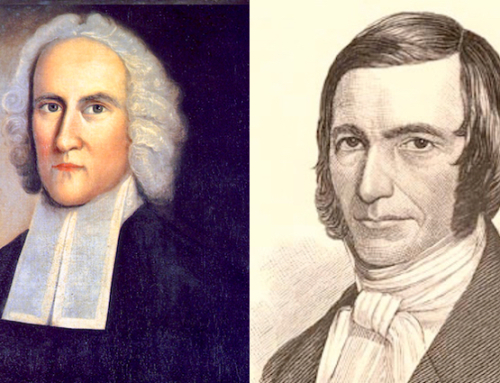After the War Between the States, there was a conscious effort at reconciliation on the part of many in both North and South. This postbellum reconciliation has mostly unraveled, in no small part thanks to conservative establishmentarians who for years have refused to raise a peep—or, in many cases, collaborated—during the leftist campaign against Southern identity.
 After the War Between the States, there was a conscious effort at reconciliation on the part of many in both North and South. The postbellum reconciliation such figures represent has mostly unraveled, in no small part thanks to conservative establishmentarians who for years have refused to raise a peep—or, in many cases, collaborated—during the leftist campaign against Southern identity.
After the War Between the States, there was a conscious effort at reconciliation on the part of many in both North and South. The postbellum reconciliation such figures represent has mostly unraveled, in no small part thanks to conservative establishmentarians who for years have refused to raise a peep—or, in many cases, collaborated—during the leftist campaign against Southern identity.
Donald Trump inspired much sneering and eye-rolling a few years ago when he warned that the mania for pulling down statues wouldn’t stop with the Confederates. Whatever his shortcomings, Trump was obviously correct here, and it is well worth our while to figure out why.
The inconvenient truth is that the American story simply does not work when the Confederacy is cast as pure, undistilled evil, for the Confederacy is indissolubly part of the American South, and said South is in turn inseparably woven into the national fabric of America as a whole. So the ongoing demonization and purge of Southern character from American life increasingly parallels the disastrous 1960s casting out of Latin from the life of the Catholic Church. From the Virginia reel to Virginia planter George Washington, from Johnny Cash’s “God Bless General Lee” to the ideal of limited, decentralized government, authentic American culture is shot through with Dixie influences.
This was once understood on all sides. After the War Between the States, certainly, there was a conscious effort at reconciliation on the part of many in both North and South. “What we need is the resumption of fraternity,” wrote ex-Confederate general James Longstreet in his memoirs, “the hearty restoration and cordial cultivation of neighborly, brotherly relations, faith in Jehovah, and respect for each other; and God grant that the happy vision that delighted the soul of the sweet singer of Israel may rest like a benediction upon the North and the South, upon the Blue and the Gray.” Where Longstreet and many other Southerners agreed to serve the victorious Union, Unionists chose to respect their defeated former enemies for their valor, and even conceded some measure of merit to the ideal of local loyalty.
As a result of this reconciliation, following the war Confederate veterans were appointed or retained in public office by eleven US presidents, as author Stephen Hood has painstakingly documented in Patriots Twice: Former Confederates and the Building of America after the Civil War. From the ranks of Confederate veterans came three associate justices and one Chief Justice of the United States Supreme Court, a Speaker of the U.S. House of Representatives, and two United States Attorneys General, one of whom established the institution which would evolve into the FBI. Enlisted men aside, eight former Confederate officers (four generals, two colonels, a major, and a captain) served as generals in the United States Army during the Spanish-American War. There was even a former Confederate holding a commission as a first lieutenant in the US Army Medical Reserve Corps during World War I, and for that matter it was a former Confederate, Thomas Staples Martin, who in 1917 as Chairman of the Senate Democratic Caucus co-drafted the United States Declaration of War against Germany. This is to say nothing of the dozens of former Confederates who went on to found towns, serve as university presidents, and establish professional associations, or of the dozens of others who would become governors, mayors, and in one instance an American Indian chief.
The postbellum reconciliation such figures represent has mostly unraveled, in no small part thanks to conservative establishmentarians who for years have refused to raise a peep – or, in many cases, collaborated – during the leftist campaign against Southern identity. Even President Trump’s belated June 26 executive order for the protection of monuments was obviously crafted to imply the administration’s total indifference vis-a-vis illegal activity directed at Confederate targets, public property or no.
Yet if egalitarianism reigns supreme, then those engaged in indiscriminate wholesale anti-American vandalism have a point, and “conservatives” seem a little absurd. If the conservative establishment is correct and the Confederacy really did embody nothing more than a cause viler than treason, witchcraft, and abortion rolled into one, what are we to make of Eisenhower, Kennedy, Johnson, both Roosevelts, and all the other presidents and public figures who celebrated General Lee as a national hero?
So far as the old reconciliation gives way to what might be called soft genocide, it becomes inevitable that America should fall, for per the “woke” perspective the real America of history was guilty of granting former Confederates an honorable – if tragic – position in the national story. With ostensibly conservative pundits now in the habit of citing unrepentant Stalinist W.E.B. Dubois’s denunciation of Lee, we should hardly expect globalist organs such as National Review to lament the death of the old republic. The supplanting of organic, historic American communities by a purely abstract ideological state has always been the endgame for neoconservatives, no less than for their de facto leftist allies.
The Imaginative Conservative applies the principle of appreciation to the discussion of culture and politics—we approach dialogue with magnanimity rather than with mere civility. Will you help us remain a refreshing oasis in the increasingly contentious arena of modern discourse? Please consider donating now.
The featured image is a photograph from the 50th anniversary reunion of Confederate and Federal veterans at Gettysburg. This image is in the public domain and appears here courtesy of Wikimedia Commons. It has been brightened for clarity.







That picture — the reenactment of Pickett’s charge (or walk) at the 1938 Gettysburg reunion — should be considered one of the most inspiring moments in American history. Is the country capable of such a thing today?
This is an incredible piece. Thank you.
What it means, though, is that the “deal” between the US and the South is over, and no Southerner owes any allegiance to the Washington kakistrophy or the symbols of this increasingly loathsome “nation”. The cause of the South has been vindicated and it is time to work and pray for peaceful separation.
We in the South have been warning for over 30 years that what we are seeing as an attack on our collective history was coming. We defended our memorials to our dead in our American history. We were called names, racist, ignored, laughed at, dismissed, and worse. We were told just to compromise on a few symbols or public displays and that’s all that was being asked, but that we would never turn our back on our collective history. We knew that was a lie even way back then because the mentality is transferable from one aspect of our history to another. It’s like a cancer that once excused only grows more infectious.
exactly!!!Thank you for your views.
Thank you for this superb essay. At Appomattox, Ely Parker said, “We are all Americans.” In his second Inaugural Address, President Lincoln said, “With malice toward none; with charity for all…” We once understood that there could be honor in the South and its soldiers despite the evil of slavery. All of that is now “cancelled,” as is Lincoln. May God help us.
I read this essay when it was first posted, but I did not comment. I did not believe it necessary to add my views since anonymous and Sam Boyd expressed them completely . However I was wrong. It has become so clear that there can never be a true bond between the South and the North. The great virtue of the North is hypocrisy.
Thank you for your comments. I am a descendant of both Union and Confederate officers.
Well said! A sad but very true story…[><]